Australia has the largest proportion of Holocaust survivors of any country besides Israel. In Melbourne, some of their descendants are leading the way to preserve the Yiddish language.
By Natasha Frost, The New York Times
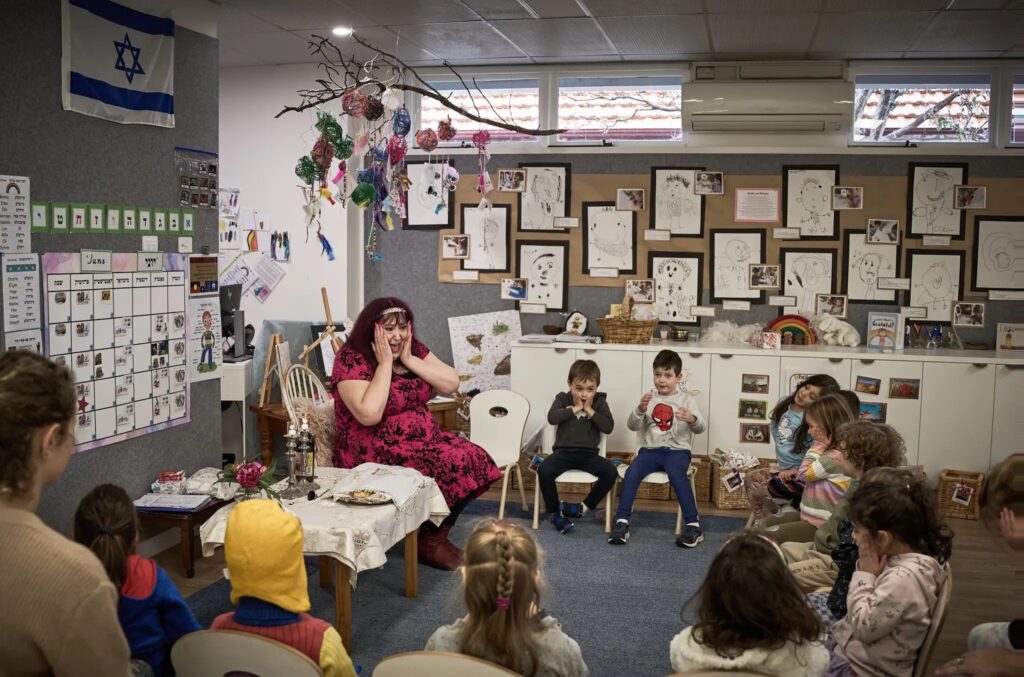
“Mir kumen on, mir kumen on! Un fest un zikher undzer trot!”
Late on a recent Friday night, dozens of voices joined in this Yiddish anthem — “We are coming, we are coming! And our step is firm and true!” — and soared from a conference center among gum trees and kookaburras outside Melbourne, Australia.
Today, Yiddish is most commonly used in ultra-Orthodox communities in places like Brooklyn or Jerusalem. But in Melbourne, snatches of it can be heard on certain streets, around multigenerational dinner tables, on stages and in classrooms.
And one weekend a year, Australian speakers of Yiddish come together at Sof-Vokh Oystralye, or Weekend Australia, for 48 hours of total immersion in the language of a thousand years of Jewish life and culture that, before the Holocaust, was spoken by 13 million people, mostly in Eastern Europe.
For some of the singers at this year’s retreat, in late May, Yiddish is the hard-fought language of everyday life. For others, it evokes a long-ago childhood in an immigrant neighborhood in Melbourne. For many of the tiniest participants, including some who had already been dispatched to bed, it is the language of the classroom, sitting easily alongside Hebrew and English at the world’s only secular primary school where it is a compulsory daily subject.
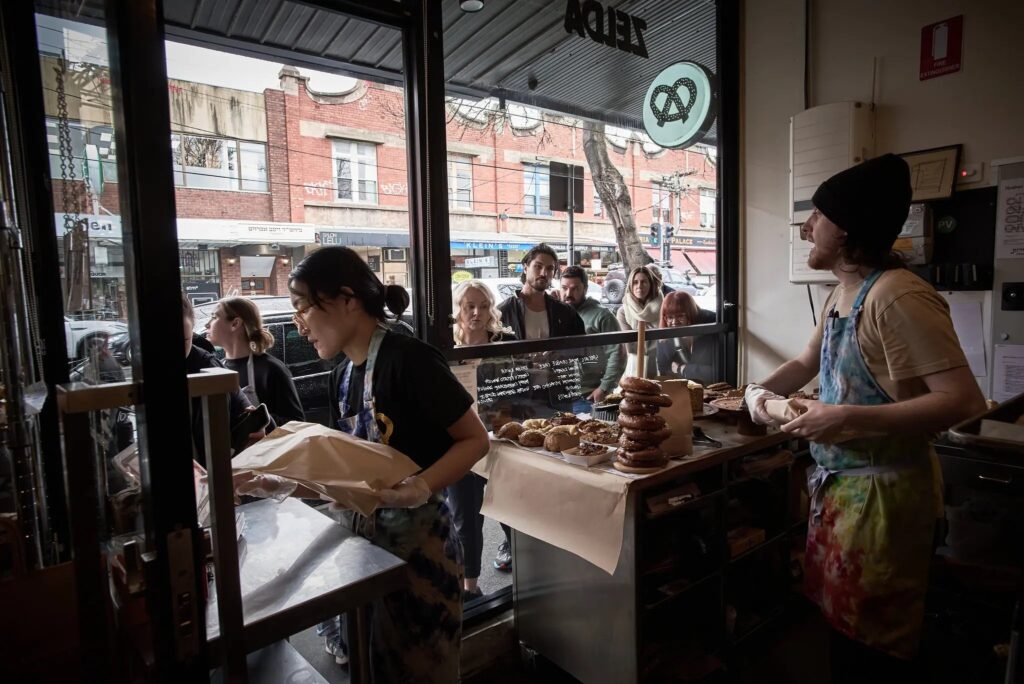
At Sof-Vokh, attendees in beanies and scarves emblazoned with the insignia of Australian football teams played Dungeons and Dragons, basketball and chess; smeared creamy cheese into blintzes in a stainless steel-wrapped catering kitchen; and played games in which they impersonated animals and translated gibberish into poetry — all in Yiddish.
From a makeshift Twister game set up in the hotel’s foyer, a tumbling child let out a loud “Oy vey!”
Beyond the lighting of candles and blessings in Yiddish over bread and wine on Friday night, there were few signs of organized religion. Yet the preservation of the language has, for the founders of the event and others in the Jewish community in Melbourne, become an almost holy crusade.
In 1995, when Melbourne’s last Yiddish newspaper closed, Freydi Mrocki, a musician and a teacher, fell to the floor of her dining room, weeping, she said. “That’s when I decided Yiddish would die over my dead body,” Ms. Mrocki, 63, said. “I gave my life over to Yiddish, in the same way that some people give their life to God.”
Along with Dr. Doodie Ringelblum, she co-founded Sof-Vokh in 2004.
“Yiddish is our contribution to world culture,” said Dr. Ringelblum, 60, “and Judaism is our contribution to the richness of human life.”
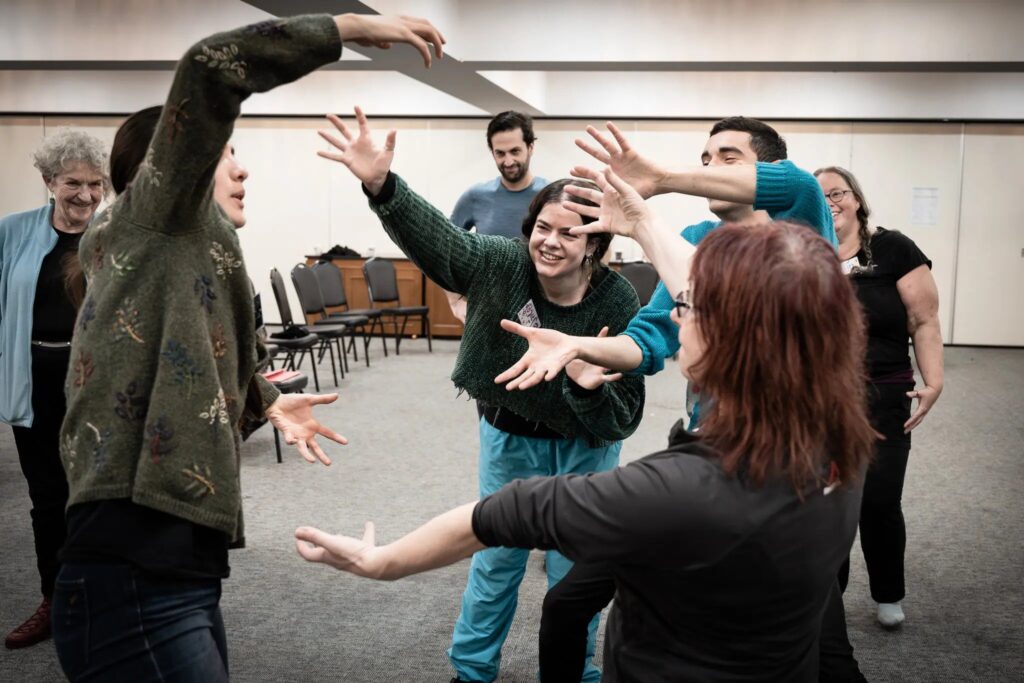
Dr. Ringelblum and his wife raised their three children to speak Yiddish as a first language. But with few other Yiddish-speaking families in Melbourne, and scant secular resources — as well as the occasional recalcitrance of his teenage children — passing it on has been “horrifically difficult,” he said. “The two words that are spoken most in our family are ‘redt Yiddish’ — ‘speak Yiddish.’”
Many of Melbourne’s present-day Yiddish speakers, including Ms. Mrocki and Dr. Ringelblum, descend from a wave of Jewish refugees who settled in the city between 1938 and 1960, giving Australia the largest proportion of Holocaust survivors of any country beside Israel.
Hania Joskowicz, who will turn 100 in February, moved to Australia in 1951 with her husband and daughter.
She spent six years of the war in a labor camp, unaware that the Nazis had murdered her parents and two of her three siblings. It had been a “nothing life,” she said in a recent interview at her Melbourne home. “In every minute, you’re dead. Every second.”
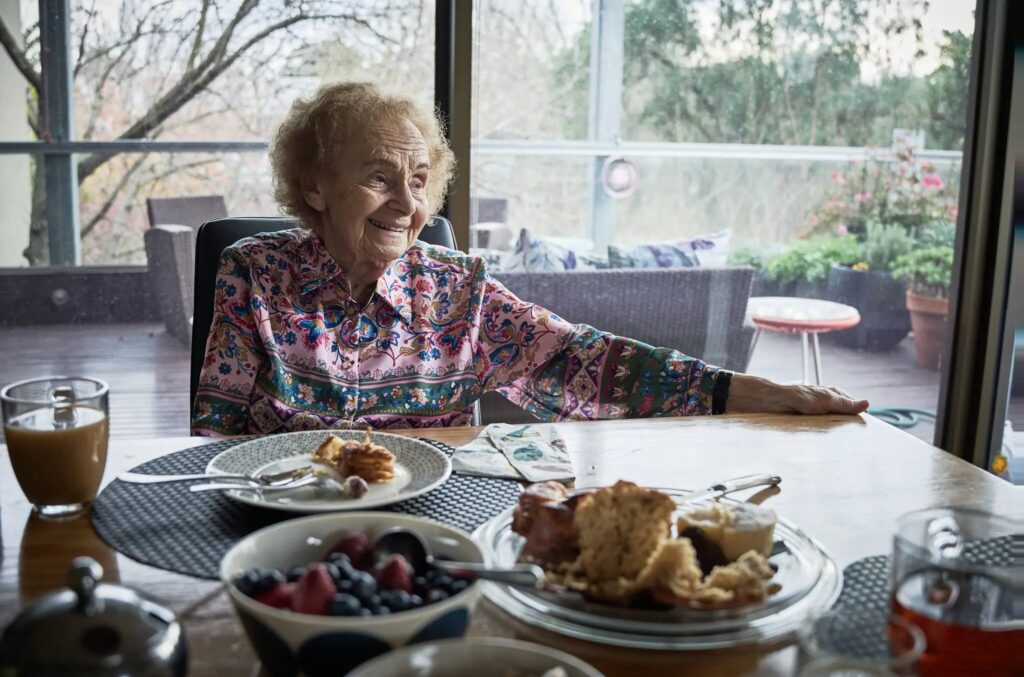
But in Melbourne, she found ready community in the neighborhood of Carlton, living among fellow Holocaust survivors and other new migrants, and picking up Greek and Italian alongside English.
“It really was shtetl Carlton, back then,” said Arnold Zable, 76, a writer who captured the community and area in his book “Scraps of Heaven.”
At the Kadimah, a Jewish cultural center and library in Melbourne, Ms. Joskowicz and her husband attended Yiddish theater, dances and other events. She recalled the shock of suddenly encountering a close friend from before the war there. “I fell down, for happiness,” she said.
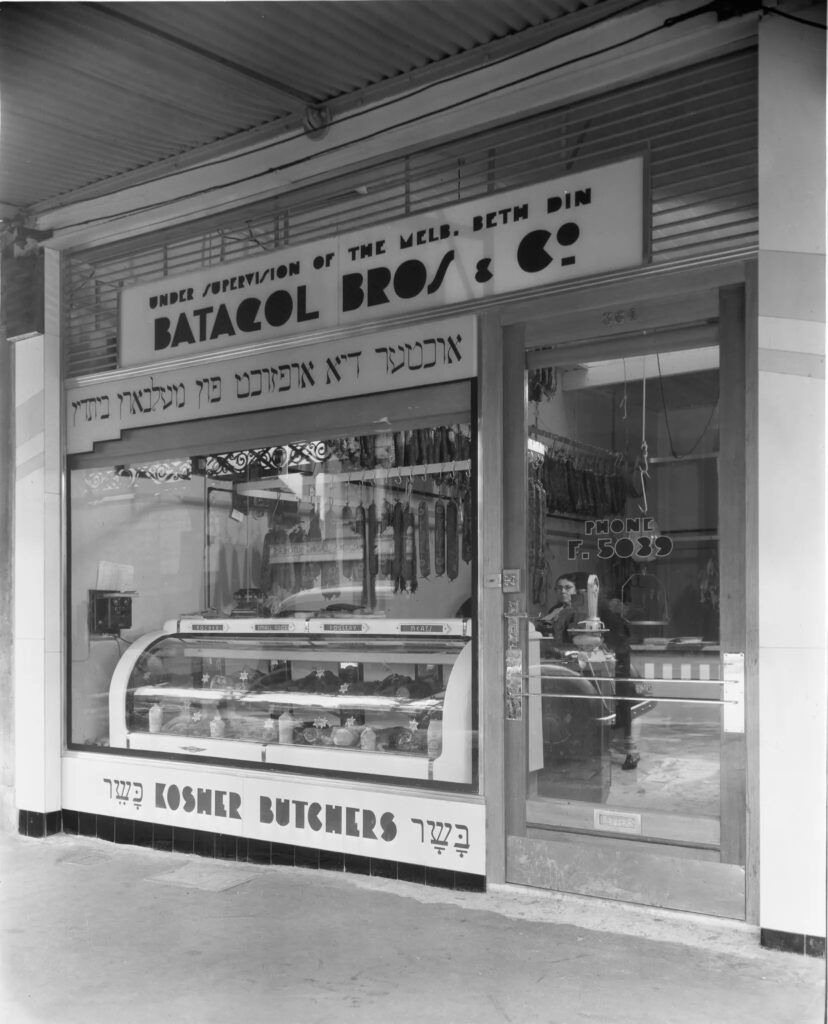
As Melbourne’s last generation of prewar Yiddish speakers fades out, the language comes to life for most present-day speakers in settings like Sof-Vokh or in classes, as well as through Melbourne’s thriving Yiddish music scene.
This has been the case around the world, said Rivke Margolis, a professor of Jewish studies at Monash University in Melbourne. “There’s no indication, at all, that Yiddish is ‘dying,’” she said.
At Sof-Vokh, she guided a rapt crowd through a monologue by the writer Aaron Zeitlin, in which a Yiddish-speaking migrant to the United States muses on his assimilated family before noting, stricken, that no one will say Kaddish, the Jewish mourners’ prayer, for him when he dies.
Over time, Melbourne’s Jewish population moved slowly from Carlton to the city’s present-day “bagel belt” south of the river, where the Kadimah eventually relocated. At 111, the organization still puts on plays in Yiddish and teaches the language to people of all ages.
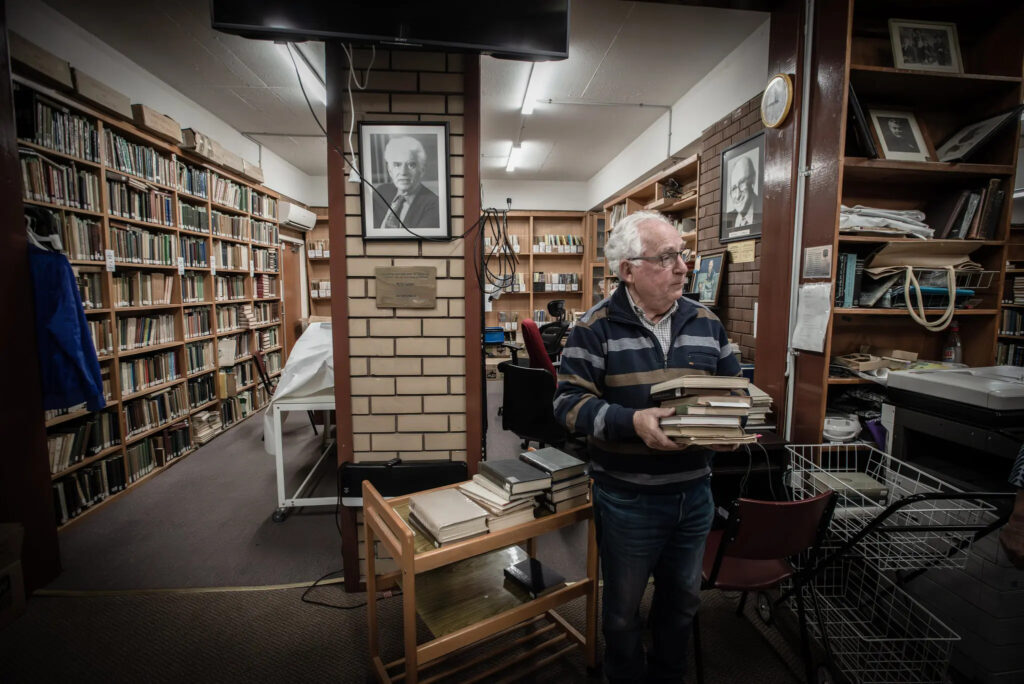
Around the corner is Sholem Aleichem College, a secular Jewish primary school named for the acclaimed Yiddish writer, where about 300 students learn in English, Hebrew and Yiddish.
At a lunch at Sof-Vokh, Helen Greenberg, the school’s principal of 17 years, laughed as she chatted with former students, and greeted those still in her charge.
“Their intonation is sensational,” she said, of her students’ proficiency in Yiddish. She added, “They don’t just see it as a language, they see it as part of their identity.”
At the school recently, in a bright, modern classroom, children of 3 or 4 fidgeted through a Yiddish-language acknowledgment of the Aboriginal inhabitants of the land, before joining together to rattle off the days of the week, starting with “montik.”
The school is now independent, and Israeli flags hang on its walls. But it has its roots in the Jewish Labour Bund, a 19th-century Eastern European socialist workers’ union that espoused Marxist and anti-Zionist values and today survives only in Melbourne, along with its youth group, SKIF.
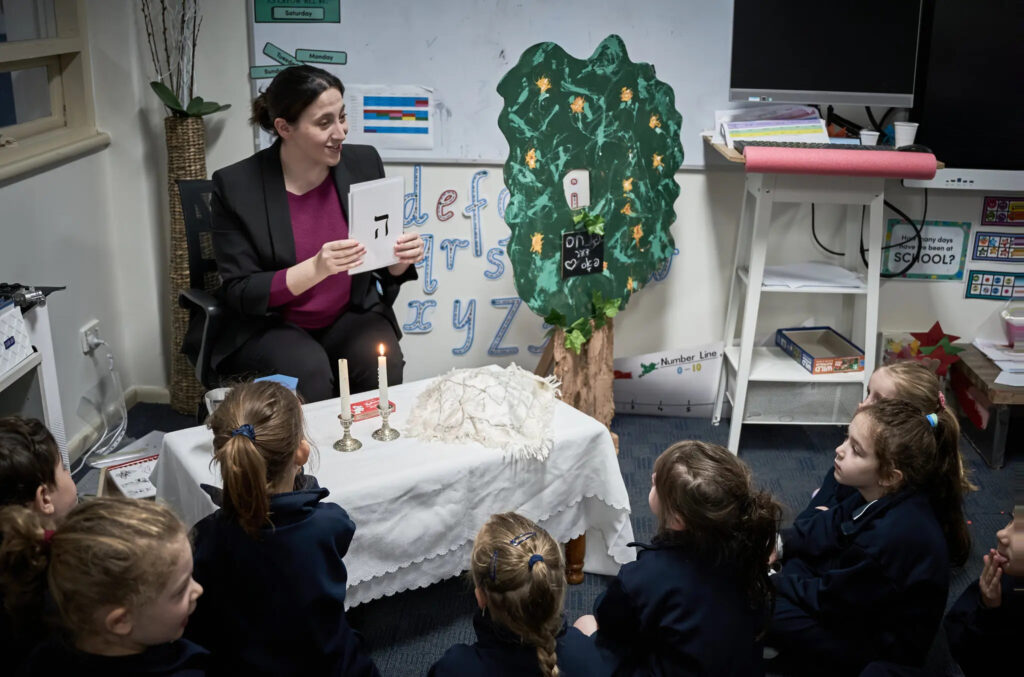
The Bund’s political philosophy, though still socialist and unaffiliated with Zionism, has shifted over time toward a focus on “Yiddishkeit,” a catchall term for Jewish culture that extends to the promotion of Yiddish language, and “Doikayt” — supporting Jewish communities wherever they are.
During the pandemic, many of Melbourne’s Yiddish institutions saw an uptick of enthusiasm in online activities that has since filtered into the physical world. In March 2022, the Kadimah presented a modern Yiddish-language adaptation of “Yentl,” by Isaac Bashevis Singer, which sold out its two-week run at one of the city’s top theaters, and won multiple Melbourne theatrical prizes.
Late on Saturday afternoon at Sof-Vokh, a small group led by Joshua Reuben, 27, and Tomi Kalinski, 71, pored over two different Yiddish translations of the “Uluru Statement from the Heart,” a 2017 petition for reparations by Aboriginal leaders that has led to a forthcoming referendum on constitutional reform.
A clamor from the dining room grew louder as they reached the end of the passage: “We invite you to walk with us,” Mr. Reuben read, in Yiddish, “in a movement of the Australian people, for a better future.”
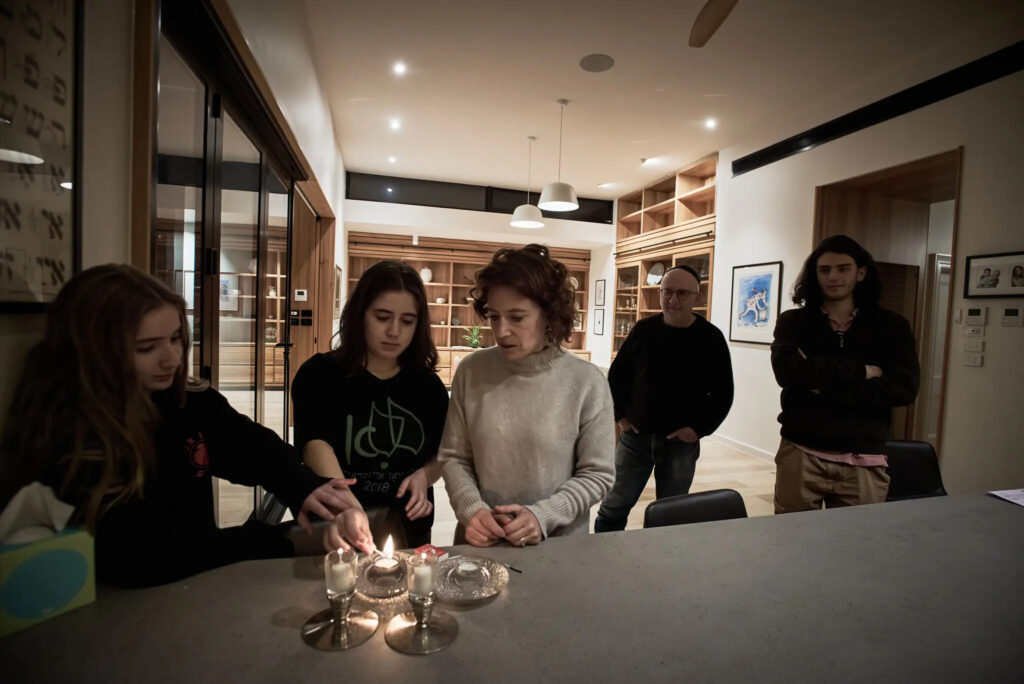
Natasha Frost writes the Europe Morning Briefing and reports on Australia, New Zealand and the Pacific from Melbourne, Australia. More about Natasha Frost
